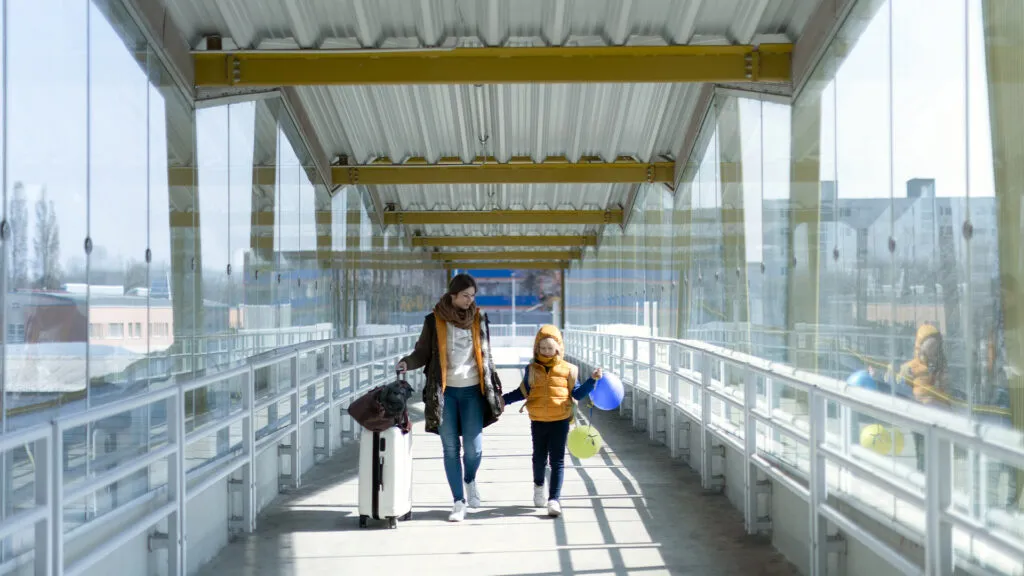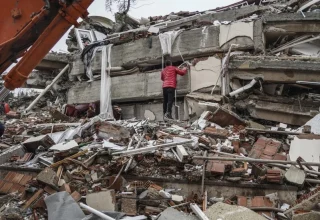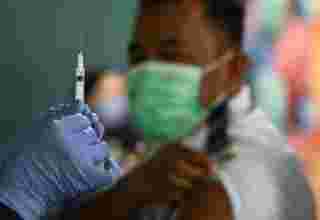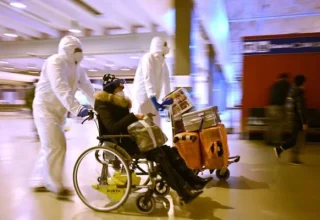
ISLAMABAD, September 26 (ABC): Fleeing threats in your home country, surviving a journey that few can imagine, then, finally, if you are lucky, reaching a country you hope will welcome you. This is the reality for many refugees. But what then? A new World Health Organization report has concluded that many migrants and refugees face poorer health outcomes than local populations. We investigate why health systems must change to meet the needs of a world on the move.
War in Ukraine, civil war in Syria, unrest and persecution in Afghanistan — these are just a few of the situations leading people to leave their countries of origin.
According to the World Health OrganizationTrusted Source (WHO), worldwide, more people are on the move than ever before.
But what happens when they reach a country where they hope to be safe? For some, asylum will be granted and they will be made welcome, as evidenced by the efforts with Ukrainian asylum seekers in both the United States and Europe.
For others, uncertainty and a long battle to prove refugee status and gain asylum will follow. During this time, they may struggle to access healthcare, leading to the “poorer health outcomes” described in the WHO report.
Escaping trauma
Few people willingly leave their home country, but circumstances sometimes make staying there impossible. War, natural disasters, discrimination, and persecution are some of the reasons people have to leave, all of which may leave mental and physical scars.
To be able to undertake what is almost certain to be an arduous journey, most migrants are, according to the WHO report, innately healthy. Indeed, many will start their journey healthier than the host population in their destination country.
However, the WHO report found that:
“Refugees and migrants often experience poor living and working conditions during departure, transit or on arrival in host countries and, therefore, face additional barriers to receiving timely diagnosis, treatment and care, which might increase the prevalence of diseases among them.”
If they survive long overland journeys and hazardous sea crossings, many migrants then spend long periods in transit camps or containment centers en route to a safe destination.
Conditions in these centers may be harsh, with many unable to provide adequate healthcare for all those who stay there. This, inevitably, leads to the deterioration of health for many.
Charities such as Médecins Sans Frontières (MSF) and other non-governmental organizations provide healthcare for some, but they cannot do so for all migrants.
A recent report from MSF on conditions in containment centers on Greek islands identified “significant systematic and structural gaps in the provision of essential and urgent healthcare for asylum seekers, refugees, and migrants.”
Women in transit
For women, conditions can be particularly challenging.
Around 25%Trusted Source of female migrants are of reproductive age, so reproductive health is a key concern. The WHO report identifies several issues in this area, including lack of antenatal care, malnutrition, and anemia in mothers and children during migration.
Dealing with menstruation during transit carries a huge burden as well, particularly for women from cultures where menstruation is a taboo topic.
A 2020 Oxfam report identified a lack of menstrual hygiene materials (MHM) and a “lack of adequate, accessible, safe and private spaces” to change and dispose of MHM as key problems for Syrian refugee women in camps in the Bekaa valley in Lebanon.
Another issue with the lack of privacy is that women may be reluctant to use facilities because of the risk of experiencing sexual harassment and violence.
And this fear is not unfounded — one 2015 study found that up to 69.3% of female migrants had experienced some form of sexual violence since reaching Europe.
The risks are greatestTrusted Source for those women and children who migrate without family or social networks to protect them.


























